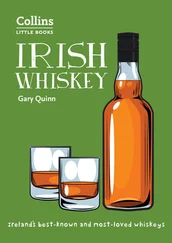Clients who do not yet know they are clients? Mark saw the twisted beauty of it: in this plan there were no victims, only indentured clients.
And then Straw named for Mark a starting salary. It was the kind of money that Mark had actually stopped thinking he was ever going to see; the kind of money that really does simplify the moral calculus of a thing. He could trade in Dumbo for Tribeca, browse the Argentine estancias listed for sale in the back of Superyachts Monthly .
And yet. That terrible spying. “But is it legal? What did Cole mean, the implied-consent decree of 2001?”
“It’s not only perfectly legal under ICD 2001,” said Straw, “but also right and moral under natural law, which, I think we can all agree, allows me to pick up and use something that another man has thrown away. And as long as we operate from within one of our sovereign parallel platforms”—Straw gestured with a flourish of his fingers at the ship they were on—“we need obey only the laws we acknowledge. You taught me that.”
“I taught you that?” Mark asked, his voice squeaking a bit.
“‘Build the world you want to be a part of.’ That’s you. Page seventy-seven.”
Oh fuck . What hideous project was using his stupid banalities as cover? He had even objected, at the time, to the world you want to be a part of line, thinking it was too obviously lifted from Gandhi, or from the Internet Gandhi at least. But he had not considered the risk that something benign like that might give comfort and encouragement to a fascist consortium declaring itself free of all laws and building a data sink on a leviathan freighter.
Up here, poolside, it was faint, but there was still that high whine somewhere, a ringing. Not like a mosquito. Like a distant alarm.
“Does the ringing sound bother you?” asked Straw suddenly.
“What? Yes. You hear that?”
“No. Not anymore. Here, try these contact lenses. They make the ringing go away.” He handed Mark a clear vial, the size of a film canister, with lenses on a little wand inside.
All Mark could do was claim seasickness. “I think I need to lie down before dinner,” he said. A lithe pool boy brought him belowdecks, and Singh escorted him the rest of the way to his cabin.
In his berth, horizontal, he heard the ringing more keenly than he had on the terrazzo. He was closer to the beast. There was a tiny cycle to the ringing, and a regular modulation in amplitude or whatever. Mark folded his pillow around his head like a helmet, but he could still hear it inside him.
He had no trouble indulging megalomania. Obviously. He was a writer, so the egotists always saw him as their ethnographer, like he was Margaret Mead or whatever. But this was something else; this involved intimate surveillance of everyone in the world, and a computer with scaffolding, a computer like an engorged penis that ejaculated other little computers that swam away with stolen data.
He didn’t know what to do. He willed himself into a stuporous nap; he had the shirker’s hope that somehow, something about the thing he had to do would be easier tomorrow or next week or when he woke up. Sometimes that hope is rewarded.
Dinner was lobster. Mark thought lobster sickening. All that rich tissue, and the cracking sounds. Pope, sitting next to him, was sloppy with his melted butter and splashed some on Mark’s cheek. He also turned out to like telling racist and unfunny jokes in what he thought was a comical Indian accent.
“Where can I find your assistant Tessa?” Mark asked Pope when dinner was finally over.
“She’s not my assistant. She’s an attorney. And she is lesbacean”—this part he said in his “Indian” accent—“so you can forget about it.”
“Actually, there are some legal issues I’d like to speak to her about,” said Mark. “If I’m to be the SIC here, I’d better make sure I’m clear on what it is we do.” This despite the fact that he had written copy for a biogenetics company for six years without knowing the difference between a gene and an allele.
“If?” said Pope, a fork erect in his fat fist. “James, I thought you said your boy here was on board.”
“He is. He is,” Straw assured Pope. “He’s just doing due diligence.” Straw handed Mark a little card that looked like a magnetic key card — no text on it, just a pattern of colored bars, with a little clip to clip it to your pocket. “That lets you go anywhere on the ship,” said Straw, “you talk to anyone you want to talk to.”
Mark knew that his cleverness wouldn’t help him too much here, so when Tessa came to the door of her stateroom, he just said, “I have some pretty basic questions.”
“I thought you might,” she said.
She led him through some maze work of ship to a room that looked like a staff canteen; maybe ten people in the room, eating off plastic trays, and three dudes playing cards. Tessa nodded at some of them.
“You want anything to eat?” she asked Mark.
He said no but changed his mind when he saw the little plastic clamshell of rice pudding in one of the fridge cases along the tray course. Tessa chose an egg salad sandwich and a piece of pie, and they sat down together at one of the Formica tables.
“How can it possibly work?” he asked her.
“It’s working right now,” she said.
“But, I mean, you guys are going to get busted.”
She didn’t look scared. “By who?” she said, expressing a sachet of bright yellow mustard into her sandwich. “There’s nothing to bust, is our position. We’ve been going for years, anyway.”
“Captain Konstantin told me this ship is a year old,” said Mark.
“Who?”
“Konstantin? Konstantinos? Constantinople? The captain guy.”
“Oh, yeah. A year sounds right. Before the ships, we were land-based. I think we still have some of those terrestrial facilities in Burma and North Korea.”
“I guess I don’t understand the payoff, though. I mean, how is this ever going to be worth the expense?”
She put down her sandwich and looked at him. “You don’t understand because you still live in a time when you can access analog knowledge. But that won’t last much longer. Soon you won’t be able to do much of anything if it’s not online. You’re skeptical, I can see, but that’s because you think being online means being in front of a screen, using a keyboard. Because your imagination is limited, and because most computers still look like typewriters. But we’re on the edge of some technologies that will change all that—”
His imagination was limited, was it? He interrupted her. “Everyone around here sounds so fucking ominous. What technologies will change all that? Because I remember hearing an awful lot about virtual reality and how I’d never have to go to a real beach again.”
Tessa did a beckoning thing toward the table where three dudes were playing cards. One of the dudes, handsome, sauntered over. “Mark, this is Chris,” Tessa said.
“Ryan,” said the dude.
“Sorry. Ryan,” said Tessa. “You were working in Inputs back in California, weren’t you?”
“I worked Inputs for six years. Biosampling, mainly.”
“Tell Mark here about some of the best stuff you’ve gotten to work on.”
Ryan did this raised-eyebrow thing and ticked his head at Mark.
“It’s okay,” said Tessa. She nodded at Mark’s little colored-bars card. Ryan straightened up.
“Pharmaceuticals that transmit, I guess,” he said. “That was pretty cool. But then the nano people kinda robbed us of that one.” He thought. “This wired contacts, though. I’m part of that shop, and we’re doing amazing things.” His pride was sincere and evident.
Tessa did a very subtle closure gesture and Ryan cleared his throat, nodded, and went back to his card game.
Читать дальше












